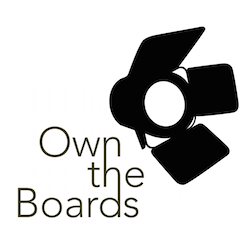Watch Le Guin’s acceptance speech or read the full transcript here.
At the 65th annual National Book awards last week, writer Ursula K. Le Guin was honored with the National Book Foundation’s Medal for Distinguished Contribution to American Letters, a lifetime achievement award. Her career stretches back to the 1960s, and in that time she’s proven herself a prolific and versatile writer, publishing numerous novels, short stories, articles, poems, and stories for children.
Best known for her work in science fiction and fantasy, Le Guin claims for those genres a place at the table of respected literature. Indeed, in her acceptance speech, Le Guin gives a nod to her fellow science fiction/fantasy writers, who “were excluded from literature for so long” and “for fifty years have watched the beautiful awards go to the so-called realists.”
Le Guin also roundly criticizes current capitalistic publishing practices, which she claims stifle writers’ independence and snuff out creative energy. Rather than simply bemoan these conditions, Le Guin urges writers to push back, to reject the “corporate fatwa” dictating modern publishing policies: “We live in capitalism, its power seems inescapable – but then, so did the divine right of kings. Any human power can be resisted and changed by human beings.”
The effects of such resistance would be profound and far reaching, notes Le Guin, because writers play an integral role in helping us understand and see beyond our current realities:
I think hard times are coming when we will be wanting the voice of writers who can see alternatives to how we live now and can see through our fear-stricken society and its obsessive technologies to other ways of being, and even imagine some real grounds for hope. We will need writers who can remember freedom – poets, visionaries – the realists of a larger reality.
We live in an age when threat and insecurity seem to hound us from all sides: political unrest at home and abroad, infectious diseases, global warming, war, financial distress. One look at a newsstand affirms our dire situation. Whatever “hard times” Le Guin envisions in our future, she urges us to face them, to resist hysteria and nihilism to move beyond them.
We can look to literature for help, but only if writers are free to imagine and create, independent of market demands. Books, stories, poems – these aren’t just frivolous forms of entertainment. Instead, they are lenses through which we can understand our world and perhaps transform it. Le Guin’s speech gets to the heart of why literature matters and provides one of the most powerful and moving affirmations we’ve seen in recent years regarding the place of writers, of “poets, visionaries,” in our society.
We feel like cheering.
